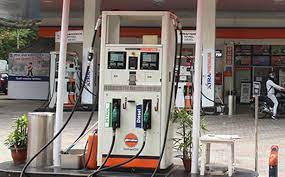New Delhi, Jun 17: In a bid to rein in private fuel retailers curtailing operations to cut losses, the government has expanded the scope of Universal Service Obligation (USO), mandating licensed entities to maintain petrol and diesel sales at all petrol pumps, including in remote areas, for specified working hours.
“The government has now expanded the horizon of USO by including all retail outlets (petrol pumps) including remote area ROs under their ambit,” the oil ministry said in a statement on Friday.
After this, entities that have been granted licences to retail petrol and diesel will be “obligated to extend the USO to all the retail consumers at all the retail outlets.”
Failure to meet norms can lead to the cancellation of licences.
“This has been done with an objective to ensure a higher level of customer services in the market and to ensure that adherence to the USO forms a part of the market discipline,” the ministry said.
The move follows some petrol pumps operated by PSU firms in states like Madhya Pradesh, Rajasthan, Karnataka and Gujarat going out of stock following a sudden surge in demand.
This demand followed the curtailment of operations by private fuel retailers who could not compete with the heavily under-priced rates of public sector companies.
With state-owned Indian Oil Corporation (IOC), Bharat Petroleum Corporation Ltd (BPCL) and Hindustan Petroleum Corporation Ltd (HPCL) selling petrol and diesel at rates that are Rs 15-25 a litre lower than the cost to keep the inflation under check, private fuel retailers like Jio-bp and Nayara Energy either raised prices at some locations or curtailed sales.
State fuel retailers haven’t changed retail prices since April 6 despite crude oil rates spiking to a decade high.
Stocks not available or being sold at higher rates, led to customers shifting from private outlets to PSUs who soon ran out of stocks, especially in hinterland locations where replenishing supplies takes time.
Now to ensure that private fuel retailers do not stop selling fuel, the government has amended the USO regulations.
The ministry said the government had relaxed the criteria for grant of authorization (licence) for marketing of transportation fuel (petrol and diesel) in November 2019 with an objective to ensure greater participation of the private sector.
“Simultaneously, it also ensured setting up retail outlets (ROs) in remote areas by these entities,” the statement said.
It has been an endeavour of the government that for remote area ROs the authorized entities provide quality and uninterrupted fuel supply services to the consumers by way of USO, it said.
These USOs include maintaining supplies of petrol and diesel throughout the specified working hours and of specified quality and quantity; making available minimum facilities as specified by the central government, the statement said.
Moreover, maintaining minimum inventory levels of petrol and diesel as specified by the Centre from time to time; providing services to any person on demand within a reasonable period of time and on a non-discriminatory basis and ensuring availability of fuel to the customers at reasonable prices, are also part of USOs.
These USOs, which previously did not apply to petrol pumps located in remote areas, have now been made universal and apply to all outlets.
Following petrol pumps running dry, the government had on June 15 stated that there were sufficient supplies of petrol and diesel to meet extra demand but admitted that the rush to PSU bunks was leading to delays and increased waiting time for customers.
Indian Oil, HPCL and BPCL haven’t raised petrol and diesel prices in tandem with the rise in crude oil (raw material cost). They sell petrol at a loss of Rs 14-18 per litre and diesel at Rs 20-25 – a loss that private retailers Nayara Energy, Jio-bp and Shell aren’t able to absorb.
A few petrol pumps of HPCL and BPCL in states like Rajasthan and Madhya Pradesh ran out of fuel, particularly diesel after customers of private retailers shifted to them.
At specific locations in some states, there has been a 50 per cent increase in demand for petrol and diesel in the first half of June over the corresponding period last year.
Most of the areas where supply issues arose are qualified as remote areas.
HPCL in a tweet on June 15 stated that its pumps in Rajasthan had seen a near 41 per cent rise in petrol sales in May over the previous month and 32 per cent in diesel while sales of private companies fell 10.5 per cent and 30 per cent, respectively.
In Madhya Pradesh, petrol sales rose 40.6 per cent and diesel by 46.1 per cent as compared to 4.3 per cent and 29.5 per cent drop in private fuel retailers.
BPCL too has witnessed a similar volume surge in these states.
The ministry attributed the increase in demand to a seasonal surge due to agricultural activities, bulk buyers shifting their purchases to petrol pumps and a substantial reduction in the sales by private firms whose volumes shifted to PSU bunks.
It however did not say why the bulk buyers shifted or the reason for the reduction in sales by private firms.
Industry sources said while petrol pump rates have not increased in tandem with cost, the price for bulk buyers such as state bus undertaking has gone up. And so the bulk buyers find it cheaper to fill at petrol pumps rather than buy directly from oil companies.
To tackle the crisis, oil companies are increasing stocks at the depots and terminals, moving extra tank trucks and lorries to serve the retail outlets; extending working hours of depots and terminals including at night, and provisioning extra quantities of fuels for supply in the affected states, the ministry had said on June 15. (PTI)


